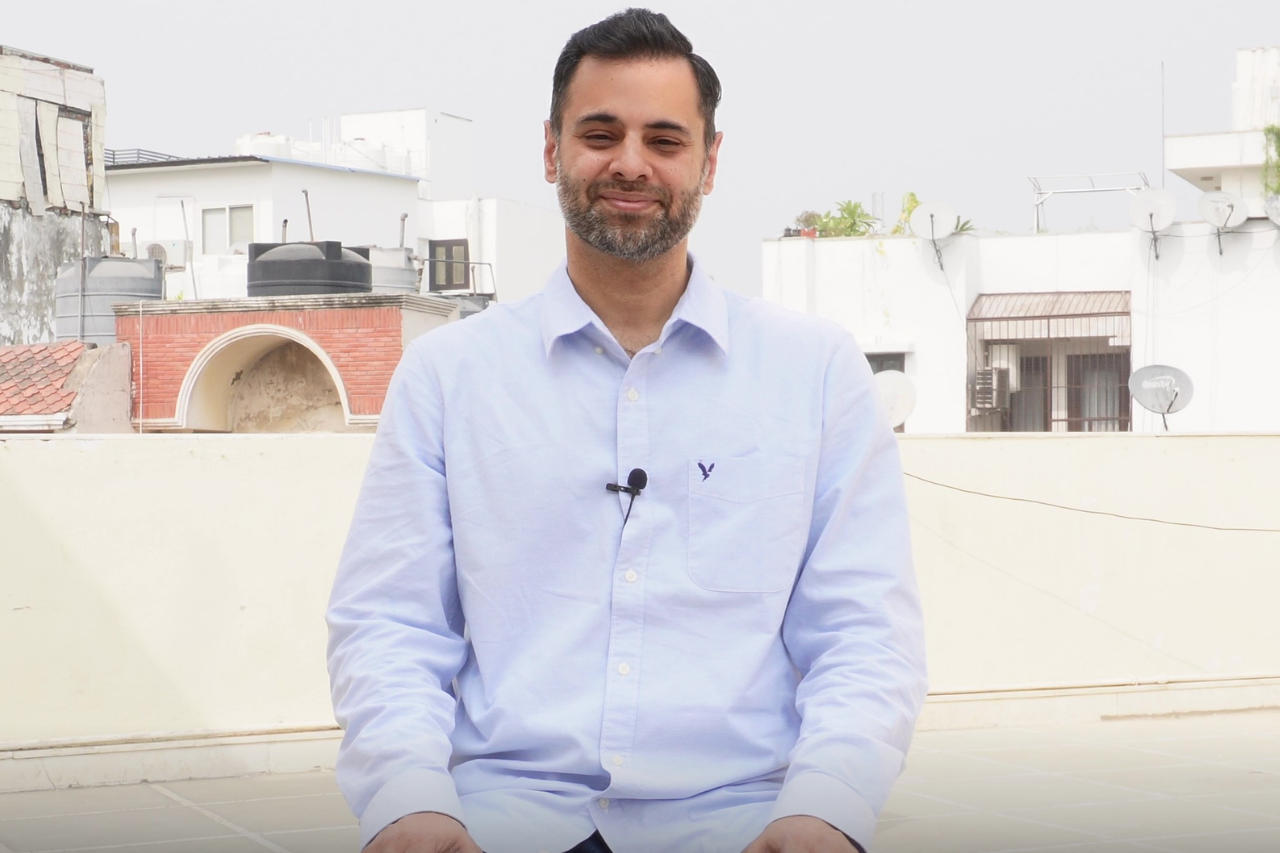Q. I engage in breath meditation (anapana sati). I hold onto the breath regardless of anything, but my body shakes, my head moves, and I feel I am rising up or flying. There’s some energy cleaning my head inside like someone cleans blocked pipes. There are contractions and stillness.
I still hold onto the breath and can quite manage well; sometimes, blue lights of energy engulf me for minutes before the rocking resumes. I can watch all of this, yet I am not sure I am moving in the right direction.
I can grasp your articles and understand what you mean by seeing the self in all, but this understanding fades at times.
When does the witness fade into nothingness in meditation? And would it be wrong to see that keeping your attention forever on the breath (even outside of meditation) could lead to a stronger identification with the nothingness that defines our lives?
A. Yes, of course, keeping your attention forever on the breath will eventually create a strong identification with a state (experience of nothingness).
And the grasping of any particular state by the ego becomes the very source of misery because we feel unhappy when we can’t retain it.
Therefore, meditation is not a prescription for spiritual awakening. It simply brings the mind to sattva (harmonious state) subject to the condition that the body is healthy.
The whole idea of an object-oriented meditation, like breath in your particular case, is to relax the mind. When the mind becomes restful, the awareness by itself shifts from the object to the subject, i.e., the “I.”
The emptiness or nothingness you experience in meditation is because the “I” has nothing to identify with, not even the breath. When the “I” stands alone, at some point, it disappears, and the emptiness reveals. It will not happen till there’s an “I” or “me” trying to achieve a state.
So any effort or forced vigilance to sustain a desirable state will only strengthen the ego, which is the cause of separation and suffering. Nothingness is the dissolution of the personal self or what you call the “me.”
Therefore, ego trying to get rid of itself is like employing a thief to protect your valuables. The ego craves ideas like moksha, liberation, freedom; call it whatever you like. But it can’t do that cause its very nature is bondage or identification.
When the mind craves nothingness, it can become an object of the mind’s fascination—a goal to achieve. Only when the ego realizes the futility of its actions or doership does the surrender happen, which is liberation.
It is precisely the reason why the understanding fades when the mind is restless. The analytical mind is only interested in grasping concepts, ideas, theories, and beliefs, purely for its survival. It will always remain confused. That said, I’m not discrediting intellectual understanding.
After all, it is the intellect that figures out someone is suffering here. Peace happens when the intellect – after trying its best – gives up, and the heart awakens.
All experiences are pointers to the absolute. Again, I’m not trying to invalidate your experiences; I’ve had similar experiences in the past myself.
But every experience is an invitation from the beloved. In other words, they are pointers to the absolute – the background awareness in which they appear and disappear.
Trying to hold on to any experience will invariably perpetuate the personal self. Till there’s an observer, every experience will be fleeting.
It is when the experiences subside that the absolute reveals itself. A slight glimpse into the “nothingness” brings a wealth of knowledge. Not the worldly knowledge or wisdom but the eternal and unchanging truth.
In my case, it unfolded in three phases:
- “I don’t know” – In this phase, I lived the life of a spiritual seeker trying to attain knowledge and wisdom by reading scriptures, spending long years doing practices like Vipassana meditation, japas, listening to discourses, and so on. I tortured my mind and body to extremes in the hope of achieving abiding bliss. There was a desperate yearning to know something that would fill up my lack.
- “I cannot know” – This was perhaps one of the most uncomfortable phases where I went through an intense period of anxiety and depression. The message was that duality is the interplay of interconnected opposites: pain and pleasure, good and bad, moral and immoral, virtues and vices, and so forth. And that the finite mind is incapable of knowing anything in its entirety. We swing like a pendulum between pain and pleasure. Trying to hold on to either of them is bound to bring suffering as the accumulated momentum will pull us in the other direction sooner or later.
- “There’s no knower. Knowing is all there is” – This is the real bliss or liberation because there’s no observer or witness, but witnessing is all that happens. It is the end of seeker seeking liberation. It is hard to describe it as an experience or state. The individual mind-body complex continues to live in duality like earlier, but the ego realizing the futility of doership, gives up. It’s the dissolution of “Me and my story.” In this phase, vairagya or dispassion naturally happens.
Coming back to your first question, until there’s “you” waiting for the witness to fade into nothingness, it won’t happen. You, the witness, and the nothingness are essentially the same. The emptiness cannot know itself objectively.
I’m sorry if all of this sounds vague; it’s hard to explain it as an experience. The first time I had this realization, I felt immense love. I still remember that day when I was standing in my house courtyard, and tears started flowing out of my eyes.
I don’t have a practice or method to recommend other than relaxation. The most clichéd advice that the majority of people can’t follow. It plays a key role in genuine self-investigation.
Self-investigation will not be sincere if relaxation is forced as a practice. So whenever the awareness happens (in meditation, sitting idle, or doing a task), stay with it without grasping. In other words, doing nothing, Nothingness happens. Once seen, it can’t be unseen.
Keep doing your practice. And if you wonder if you’re moving in the right direction, it is your mind contemplating. The mind will always be a skeptic; it will go back and forth. Let it be. Surrender to the divine energy, and it will guide you.
And as the awareness increases, the understanding deepens, and the fictional “me and my story” ends. What remains is the eternal now.
The above article is an extract from my e-book, I Hope You Get Nothing Out of This, which is available on Amazon Kindle.

